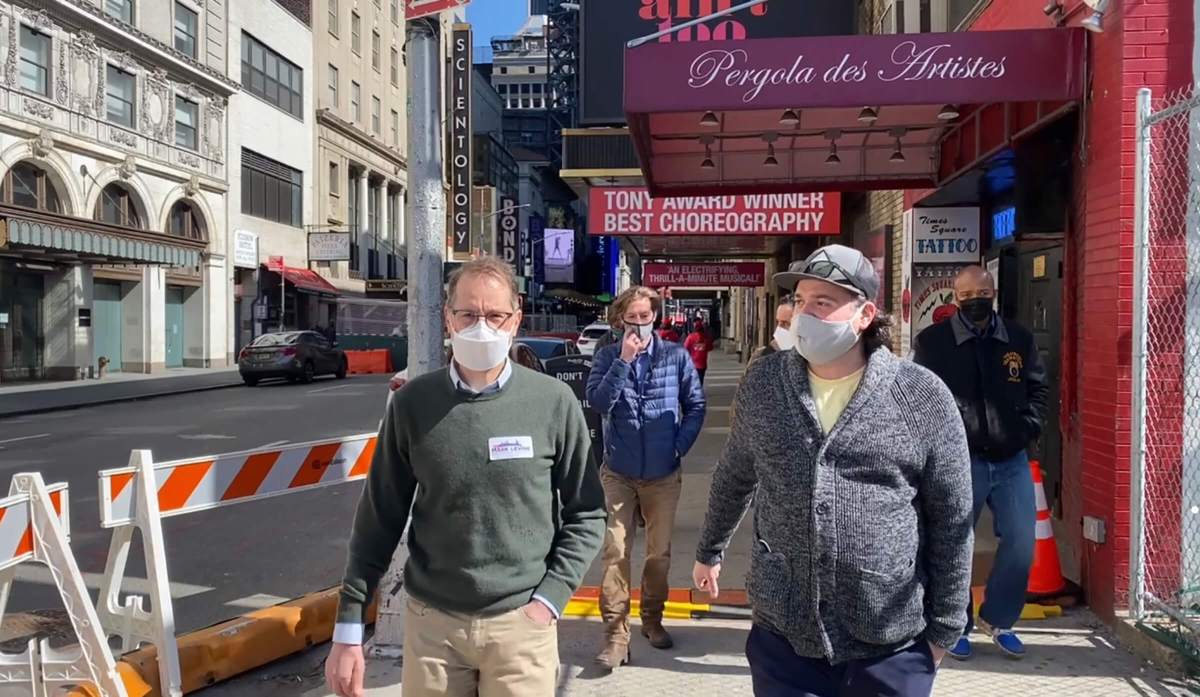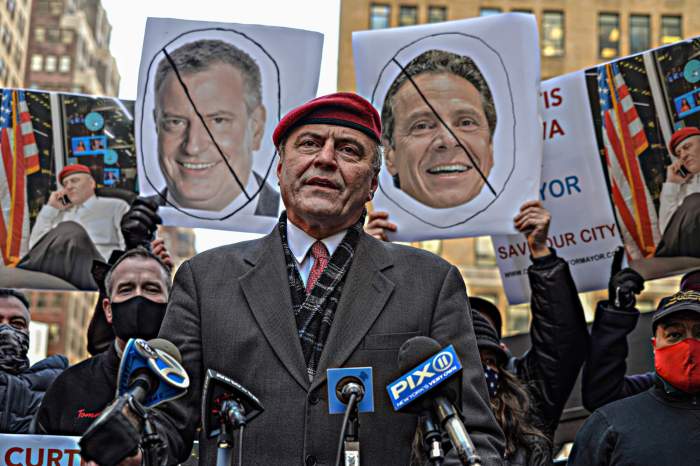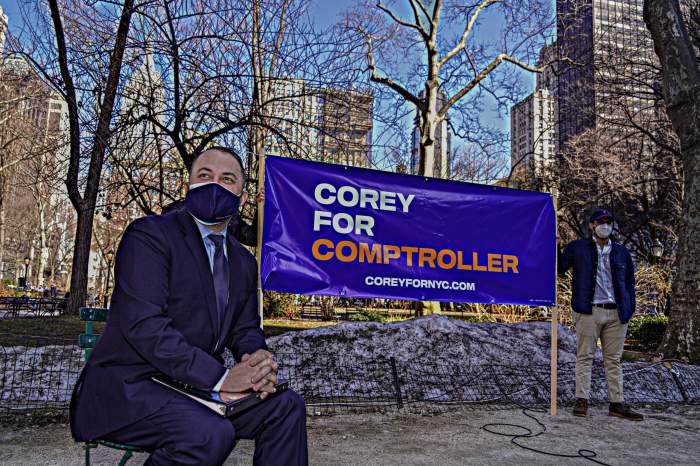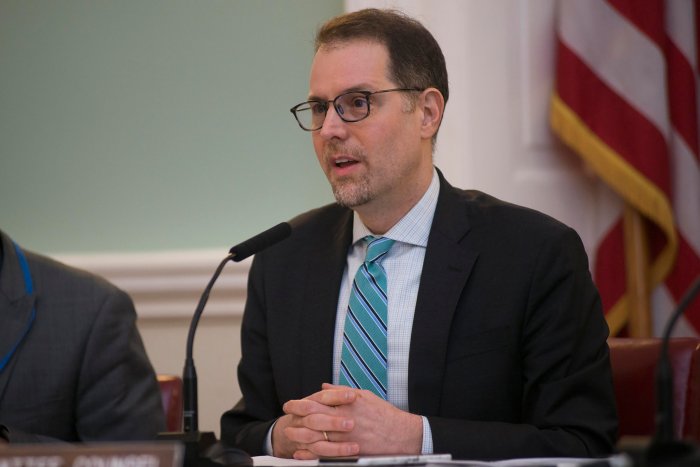Council Member Mark Levine outlined a plan to fund the arts in NYC to support the COVID-19 recovery process, if elected Manhattan Borough President.
On Saturday, the St. James Theater became the first venue to welcome audience members after more than a year of shuttered doors with a performance starring Nathan Lane for frontline workers. It was the first of 10 small pop-up shows to test the waters on safely welcoming theatergoers during a pandemic.
Plays, musicals, and operas have always been synonymous with New York City as we know it and Council Member Mark Levine agrees, believing the arts to be instrumental with aiding in the big apple’s economic restoration. Many businesses took a hard economic hit during the height of the COVID-19 pandemic, but art-based hubs like Broadway, which support tourism, have often been overlooked. If elected as Manhattan Borough President, Levine has told amNewYork Metro that he plans to dramatically increase funding for the Department of Cultural Affairs from .02% to at least 1% of the city’s budget. All of these funds will be utilized to install HVAC systems to these theaters, many of which are housed in buildings that are over one hundred years old.
“There is no comeback for New York City without the arts. This sector is a huge economic engine for the city because of the good jobs directly in the arts, but also there is a multiplier effect because the arts are a magnet for people to visit, to work, to live here, and so there many other sectors from hospitalities to restaurants to retail that thrive because of the draw that arts have to our city,” Levine told amNewYork Metro in an exclusive interview.
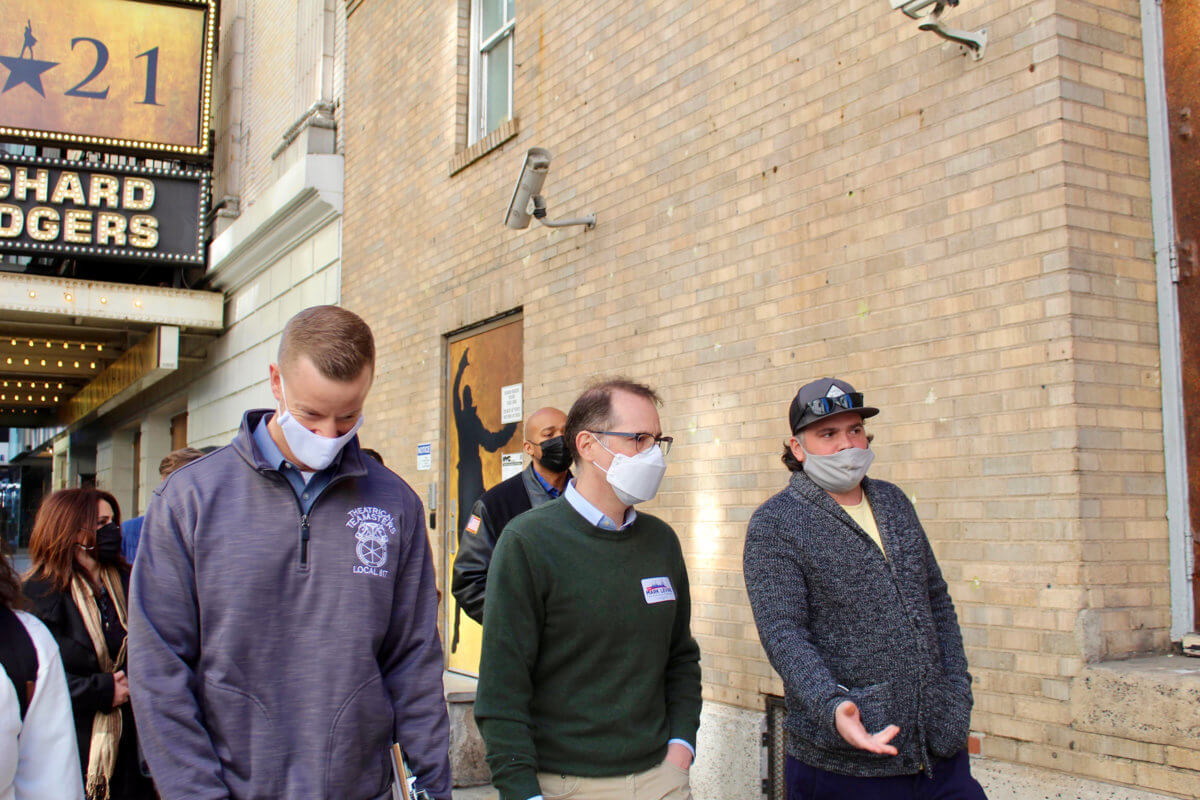
The first step in bringing the arts back is getting local government involved, and Levine believes that this will happen through direct investments from the city. He also shared that if elected Manhattan Borough President, he will advocate and facilitate funds for the arts. Levine states that the position of Manhattan Borough President has access to millions of dollars in capital money to use at their sole discretion, which he will additionally utilize to aid the art industry.
“I don’t think the arts can come back without the support from the public sector because of the unique blow they have sustained over the past year. Also, I see this as a way for the arts to come back different and better. For example, to address the inequality that has defined the sector in many ways to really lift up art institutions in color, artists of color, and diversity in content. So, I think there is a chance to not only bring the arts back, but to bring them back better,” Levine said.
With adequate funding as the key, Levine is sure that the other pillars of his plan will be able to follow, such as making sure fair wages are provided, increasing diversity, and including more arts education in schools, particularly in neighborhoods where these teachings have been overlooked in the past. The arts are important to Levine, who believes culture helps promote learning and cultivate professions. He also envisions providing capital to help theaters function while there are capacity limitations since they have fixed costs that have to be offset by the number of seats sold.
“The city could help by buying surplus tickets so that the finances still work for these productions. So that they keep a full cast and ensembles,” Levine said.
Additionally, Levine says he hopes to ensure that this arts and entertainment sector provides good jobs and honors existing collective bargaining agreements. He emphasized that the theater industry is a largely unionized sector and wants to make sure the pay and benefits remain. He has found that these jobs may be under threat by institutions attempting to take advantage of the pandemic to undermine collective bargaining agreements.
“Workers are vulnerable right now, they are going a year without steady work and that is unacceptable. It is really important that this sector come back as a source of great jobs that existing collective bargaining agreements be honored and that the solution to make the finances work is to not to cut cast and ensembles. I think that if the public sector steps in with help in the ways that I described we can do that,” Levine said.



